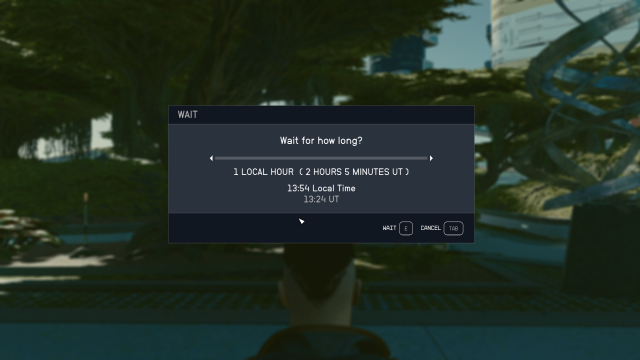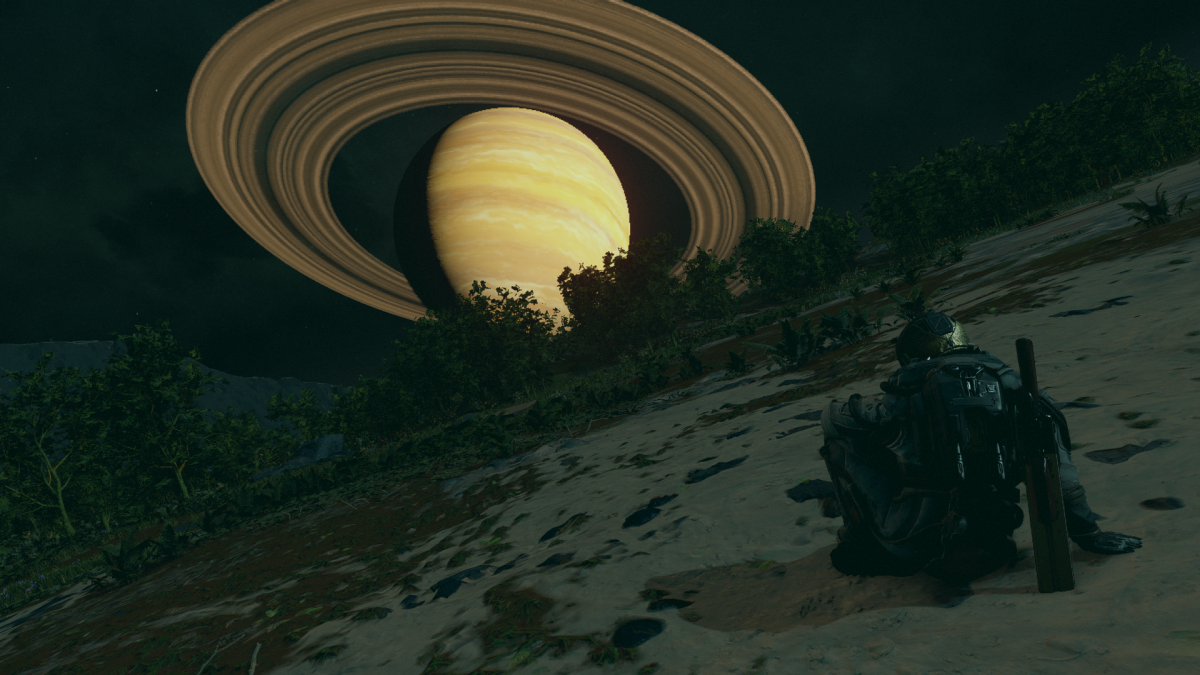Starfield allows players to travel anywhere through outer space in their ship. I’ll spare you from a physics lecture, but that also sort of means you can travel any time through space. At least relatively, anyway.
Just like how there are time zones on Earth, there are time zones on Starfield, so depending on where you are in the universe, time will be different. Starfield‘s timezones are a step above our own on Earth, however, as one hour means different things on different planets.
Starfield: Universal Time and Local Time explained
Whenever you choose to sleep or wait in Starfield, you’ll see two different times—Local Time and UT. Local Time is the time in your current location, while UT stands for Universal Time—the standard agreed upon universal “true” time. Don’t start thinking about the implications or your brain will explode, just accept it.
Universal Time in Starfield is not based upon any planet that humans live on, but rather one they used to live on. Earth! If you travel to Earth and choose to wait for one hour, you will see Universal Time and Local Time line up perfectly.
Local Time refers to the amount of time it takes the planet you’re currently on to rotate around its sun. An hour will pass at the same rate (as far as your character’s relative experience is concerned) no matter where your character is, but depending on how fast or slow your current planet is rotating, that could mean tons of Universal Time or very little Universal Time has passed.
For example, if you’re on a planet that orbits twice as fast as Earth does, then waiting for one hour in Local Time will only pass 30 minutes in Universal Time. The flip side is also true, and sometimes, a little maneuver can cost you seven years back on Earth. In fact, in our real universe, Titan, one of Saturn’s moons, takes 15 times as long to complete its orbital path as Earth does.
If you wait for 24 hours Local Time while parked up on Titan in Starfield, two weeks of Universal Time will pass. The statistics tracker will clock two weeks as having passed and everything, it’s awesome.

Do Universal Time and Local Time matter?
You’re probably wondering if there are actual ramifications or benefits to exploring on a planet where one hour is seven years back on Earth. The answer is…sort of? Mostly, it is just a cool worldbuilding device.
Universal Time vs Local Time is definitely not something you need to be wary of. In fact, you can finish an entire playthrough without even noticing that there are two time trackers in the menus. That said, it does have an effect, albeit a minimal one.
Vendors refresh their inventories after 24 hours of their Local Time. If you spend a week on a planet with a significantly lower or faster Local Time, you can greatly expedite or slow this process relative to your own experience. If you pop over to a planet where time moves 10 times slower than it does on Jemison and explore for just a few minutes, a day will have passed when you return to New Jemison, and vendors will have refreshed inventories.













Published: Sep 8, 2023 01:03 am